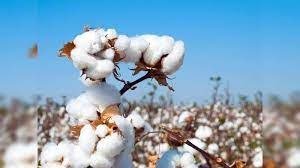ISLAMABAD: The persistent rise in cotton prices has generated concerns, putting doubt on the textile sector’s prospects for 2024, according to WealthPK.
The local cotton market witnessed spinners’ enthusiasm in purchasing excellent cotton, particularly in the last week of December 2023, causing the price to climb by Rs500 to Rs1,000 per maund.
“Cotton production has been declining year after year due to an extraordinary increase in sugarcane cultivation in Sindh and Punjab’s cotton zones, as well as poor weather conditions. However, in 2023, the situation improved to some level, and crop yield was significantly higher than in prior years,” said Muhammad Akbar, Scientific Officer at the Central Cotton Research Institute in Multan.
However, the increased interest of textile spinners in purchasing superior-grade cotton leads to a strong demand-supply scenario, resulting in a significant increase in market pricing.
He continued, “For textile manufacturers, the rise in cotton costs is a difficult situation. This spike will increase production costs and hinder earnings.Imagine running a factory that turns raw cotton into clothing as the price of the initial cotton material skyrockets. This involves greater costs at every stage of the process, from purchasing raw cotton to producing the end product. As a result, manufacturers’ profit margins will shrink, creating a tough and challenging environment for them to navigate.
“Exporters, another important component of Pakistan’s textile industry, may face a competitive disadvantage as a result of rising manufacturing costs. The greater cost of production will make Pakistani textile products less price competitive in the global market, thereby reducing the country’s share of foreign trade,” Akbar stated.
He continued, “Cotton consumption by the textile industry this year has declined significantly; if the conditions remain, additional factories may close. To address these issues, authorities should explore specific measures such as financial support or incentives for manufacturers.”





















